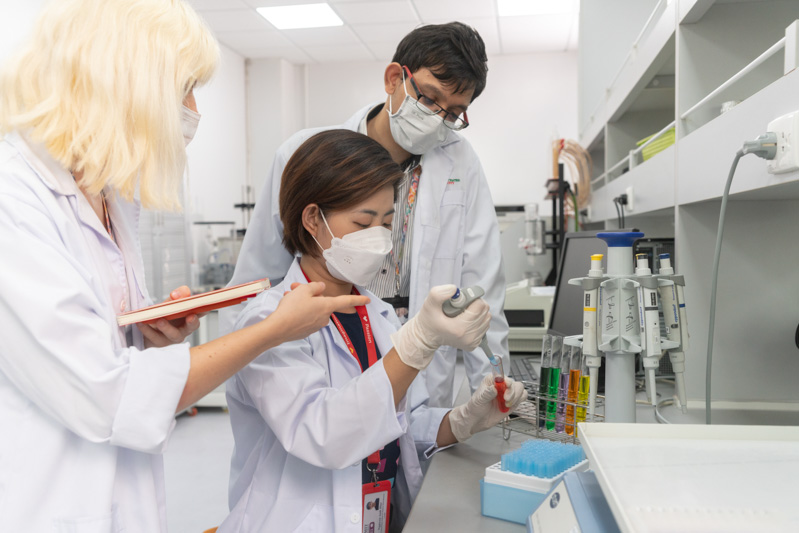Acknowledging the long history of food technology and nutrition programs currently available in Vietnam, Dean of RMIT School of Science, Technology and Engineering Professor Kirk believed the University’s new globally recognised, international standard degree from Australia still can offer students an exciting and different pathway to the industries, including having the skills to venture forth as an entrepreneur and to build their own brand and business.
“Students learn the innovative processes that turn raw materials into food products, and how scientists are able to improve both the taste and nutrition of final commodities,” Professor Kirk said.
“The foundational courses in chemistry and microbiology will root students firmly into the food technology and nutrition industries, along with other courses in food processing and human nourishment.
“Depending on their main interest, students can choose one of two majors in year 2 - the nutrition major which covers human health, nutrients and sustenance, whereas the food technology major focuses on manufacturing, both traditional and futuristic, the sensory evaluation of food, product development and quality assurance.”
Professor Kirk emphasised that as part of the University-wide approach to Work Integrated Learning (WIL), students in both majors will undertake a capstone course “in product development, learning how to reverse engineer a food product or research the current food landscape and develop their own product to fulfill an industry need”.
“Students gain access to both professional labs and an industrial kitchen via the University’s partners for extensive hands-on industry ready lab work,” he said.
Given the practical experience gained during the program, students who graduate from the Bachelor of Science (Food Technology and Nutrition) will have access to an exciting array of careers both within Vietnam and internationally which may include:
- Becoming the owner or manager of a food and/or food ingredient manufacturing company
- Working in research and development at a large food processing company
- Developing new food products with nutrition at their core
- Working in sales and marketing, purchasing or supply chain for a food or nutrition business
- Becoming a nutrition consultant
- Developing food management programs and menus for the public or private sector
Professor Kirk said graduates of both majors are eligible for AIFST (Australian Institute of Food Science and Technology) membership and nutrition major graduates are eligible to apply for registration as a nutritionist with the Nutrition Society of Australia.
Story: Ha Hoang





